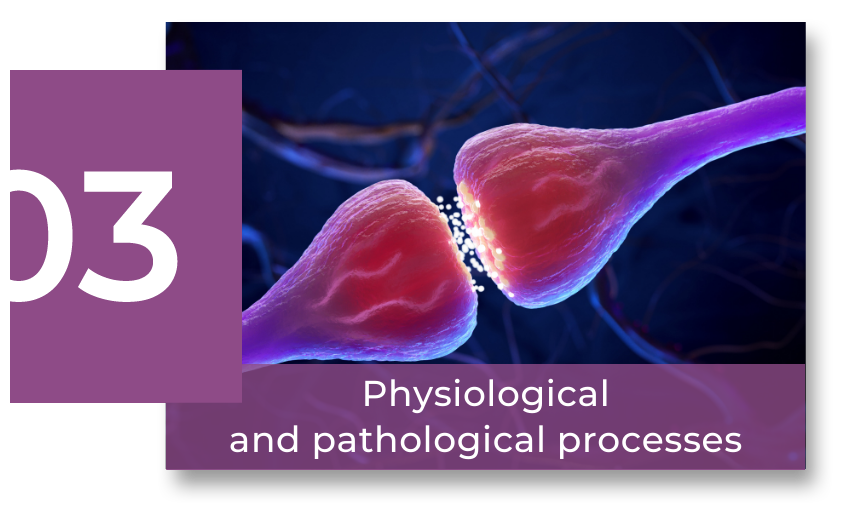Scientific Program
Tissue and organ homeostasis
RESEARCH GROUP
Metabolism and B cell function

Nuria Martínez Martín
During the immune response, B lymphocytes recognize antigens and get activated, differentiating into plasma and memory cells. We investigate the role of B cell metabolism in this process and how its imbalance links to a spectrum of immunological disorders

Research
In our organism, infection leads to the orchestration of a finetuned immune response. This response relies on the activation of several immune cells; among them, activation of B lymphocytes is crucial, giving place to the production of specific high-affinity antibody-producing cells (plasma cells, PC) and memory B cells (MBC). Activated B cells proliferate massively during the immune response, originating a macroscopic structure within the follicles of secondary lymphoid organs known as Germinal Centers (GC). In GCs, B cells interact with different immune cells in a highly coordinated way which drives their differentiation into PC and MBC.
Deciphering molecular mechanisms controlling GC initiation has attracted the attention of immunologists in the last decade, aiming to understand the stepwise immune response and improve vaccination strategies. In this regard, every time is more evident that GC initiation entails critical metabolic changes in the immune cells. Thus, characterisation of the metabolic profile of each immune cell and understanding how metabolism instructs intrinsic cell activation, proliferation, and differentiation in the GC has become an essential field of study. However, GC is a double-edged sword: while a deficient GC initiation can lead to immunodeficiencies, an overactivation of GC can lead to GC-derived lymphomas or autoimmune diseases. Therefore, in addition to GC initiation, the processes leading to the GC reaction and termination of the cellular expansion are also of high scientific and clinical interest. However, the mechanisms for this GC shutdown have been disregarded until now, considering them as just a passive process.
Our laboratory has generated ground-breaking results showing that GC shutdown is actively triggered by a precise shift of the metabolic profile of GC B cells. Moreover, our data suggest that the metabolic activity of B lymphocytes not only impacts B cells themselves but instructs the metabolic rewiring and fate differentiation of neighbouring T lymphocytes. We hypothesise that massive proliferation at the GC must lead to changes in the substrate availability at the GC microenvironment. These changes may trigger a precise metabolic rewiring in B cells, establishing what we have named as a ¨shutdown metabolic profile¨. This metabolic profile leads to the production of particular signalling molecules, which will both shape B cell function intrinsically and will signal on neighbouring immune cells, driving, all together, the GC shutdown.
Our group aims to characterise the ¨shutdown metabolic profile¨, how it is triggered, and identify all the molecular entities that mediate it. The obtained information will be evaluated in terms of its therapeutic potential in B cell lymphomas and leukaemias, autoimmune diseases, and to improve, in the future, vaccination strategies.
Group members

Nuria Martínez Martín
Lab.: 120 Ext.: 4517
nmartinez(at)cbm.csic.es

Elena Giulia Rodríguez Bovolenta
Lab.: 120 Ext.: 4721
erbovolenta(at)cbm.csic.es

María Velasco de la Esperanza
Lab.: 120 Ext.: 4721
mvelasco(at)cbm.csic.es

Belén Seco Estrada
Lab.: 120 Ext.: 4721
belen.seco(at)cbm.csic.es

Jonathan Ruiz García
Lab.: 120 Ext.: 4517
jruiz(at)cbm.csic.es

Virgilia Olivé Rodríguez
Lab.: 120 Ext.: 4517
volive(at)cbm.csic.es

Ana María Prieto Muñoz
Lab.: 120 Ext.: 4721
ana.prieto(at)cbm.csic.es

Alex Sánchez Iglesias
Lab.: 120 Ext.: 4517
alex.sanchez(at)cbm.csic.es
Selected publications
Antigen phagocytosis by B cells is required for a potent humoral response
Ana Martínez‐Riaño et al.

Protein Kinase C-β Dictates B Cell Fate by Regulating Mitochondrial Remodeling, Metabolic Reprogramming, and Heme Biosynthesis
Carlson Tsui et al.
R-Ras2 is required for germinal center formation to aid B cells during energetically demanding processes
Pilar Mendoza et al.
A switch from canonical to noncanonical autophagy shapes B cell responses
Nuria Martinez-Martin et al.





